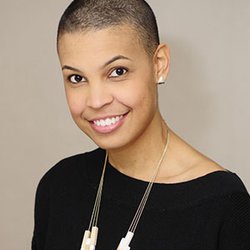Kathryn Mariner

Kathryn Mariner
Associate Professor Anthropology, University of Rochester
- Email: kathryn.mariner@rochester.edu
- University of Rochester (profile)
Organizer of:
Professor Mariner's research examines the relationship between social inequality and intimacy in the United States. As a cultural anthropologist additionally trained and licensed in clinical social work, she investigates how historical and contemporary structures of power, such as race and racism, shape how people construct notions of family and community in their everyday lives.
Her first book, Contingent Kinship (University of California Press, 2019), is based on research at a private adoption agency specializing in the transracial placement of Black and biracial children in Chicago. In developing the theoretical concept of “intimate speculation,” the book explores the speculative logics of domestic transracial adoption, by attending to how raced and classed exchanges of power, money, and knowledge produce notions of the Black child as a highly contingent imagined future. The conditions of possibility for this adoptive future often include historical legacies of dispossession and the devaluation of Black motherhood. Witnessing this process unfold within Chicago's landscape of stark race and class segregation has informed Professor Mariner's current interest in the relationship between social inequality and physical space.
Professor Mariner's current research project, fertileground, investigates the relationship between race and placemaking in Rochester, New York. In order to understand how individuals from marginalized groups build physical spaces of community within the context of hypersegregation, the project utilizes community-based and participatory approaches to fieldwork, and employs the methods of observant participation, interviews, mapping, photography, and artistic production to capture the many ways residents are creating and sustaining lifeworlds in a city sometimes described as “dying,” and where certain racialized spaces in particular have been problematically termed “fatal.” This project sprouts from three existing intellectual traditions: theories of space and place, urban ethnography and history, and feminist and Black geographies. Learn more about the project at fertilegroundroc.org.